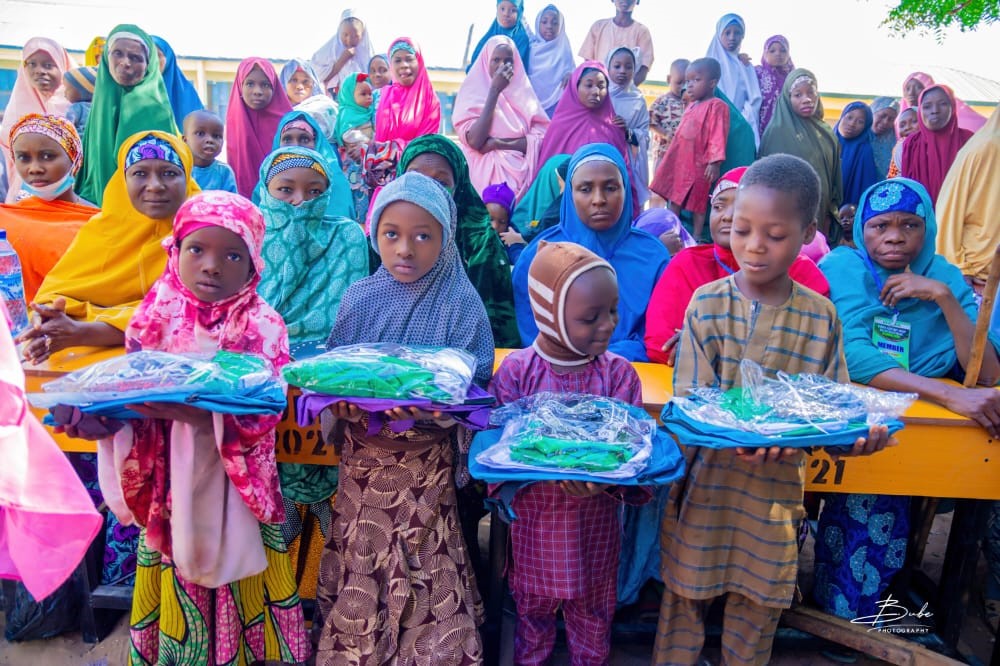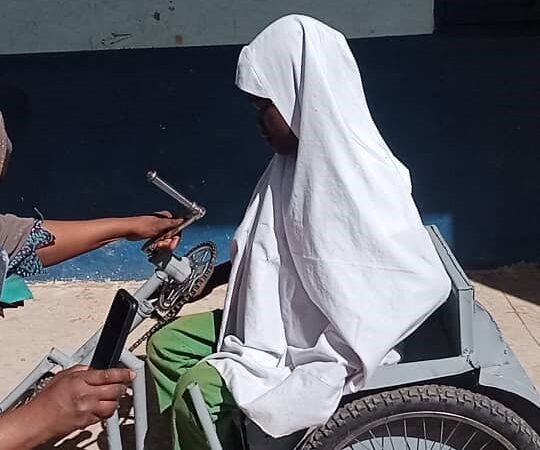State 2 State

Sokoto State has low school enrolment, retention, and completion rates. The situation worsens as students transition from primary to secondary school, especially for girls. The secondary school enrolment was just 35.66%, yet the completion rate was 64.82% for boys and 34.91% for girls for junior secondary education and the situation worsened by half as the girls’ transit to senior secondary school with a completion rate of 17.28% (Nigeria Education Indicators, 2016).
NANA believes that the only way to improve education indices in the state is to improve enrolment, retention, and transition. Mothers are less likely to retain their children, especially daughters in school if the quality of learning is poor. Low participation of women in decision-making around education contributes to poor learning outcomes in the state. Women pay the highest price for low-quality education due to low investment and lack of accountability. This has had a direct impact on the low retention of girls and vulnerable children such as persons with disability and orphans
To improve the low participation of women in school governance, NANA secured a USAID-funded grant under the partnership and guidance of DAI to facilitate and support women to come together as a group to advocate for increased investment and accountability in the governance of schools for improved quality service delivery in the target communities. The group will be called Women Advocacy Group for Education (WAGE)
NANA facilitated the establishment of 21 WAGE groups with 84 members and empowered them with the necessary skills to
- Monitor their school’s performance and provide feedback to other women in the community
- Conduct advocacies to relevant stakeholders
- Establish a feedback mechanism where women’s voices are collected, acted upon, and feedback provided

Success Recorded
- General acceptance by all stakeholders visited and linked to Nana Asmau Yan’taru movement of 19th century Sokoto Caliphate
- The training given to the WAGE groups has equipped and improved their advocacy skills. Many of them expressed their appreciation for how NANA is building their capacity
- In Sokoto South a boy was locked up in his house for more than 6 months by his father. He was denied going to both primary and Islamic schools. The mother reported to WAGE and requested the group to intervene because she wants her son to go to school. The WAGE group reached out to the father who refused to give a reason for his action. At the initial stage, the father rejected the WAGE group intervention, but the WAGE group persisted. A month later, the mother called the group attached to the boy’s school that the boy had finally regained his freedom and asked if the boy could return to school. The boy is now back in school
- Most parents in the Gwaggalawa community of Sokoto South do not enroll their children in school. The WAGE group therefore set out for sensitization. About 23 children were enrolled at GidanDilo Primary School two months back and the WAGE promised to give every child a set of uniform and writing materials. A register showing the names of the 23 children was shared with NANA
- In Sokoto North, a boy in JSS Rumbukawa was removed from school by his parents because he followed bad friends who diverted his attention and influenced him to abscond school. The WAGE advised the parent that the action taken would deprive him of attending school and may ruin his future. The parents were convinced to bring back the boy and the WAGE collaborated with teachers in the school to put in place a system that will monitor the boy’s movement during school hours.
- The WAGE group from Jabo Model Primary in Tambuwal LGA visited the IDP camp for sensitization. They promised to give uniforms and writing materials to anyone enrolled in the school.
- Sokoto South facilitated the medical treatment and enrolment of a deaf disabled boy into Adisa Raji Special School by Chaiman Sokoto South, Alh. Faruku Sawidi
- Achievements recorded from the advocacies include a cash donation of 1.2 million naira, 650 pairs of uniforms, 200 school bags, and over 1000 exercise books and pencils. So far 248 vulnerable children were given a pair of uniforms, a bag, and writing materials. 27 teachers were redeployed and 2 blocks of classroom and a Headmistress’s office were renovated.
